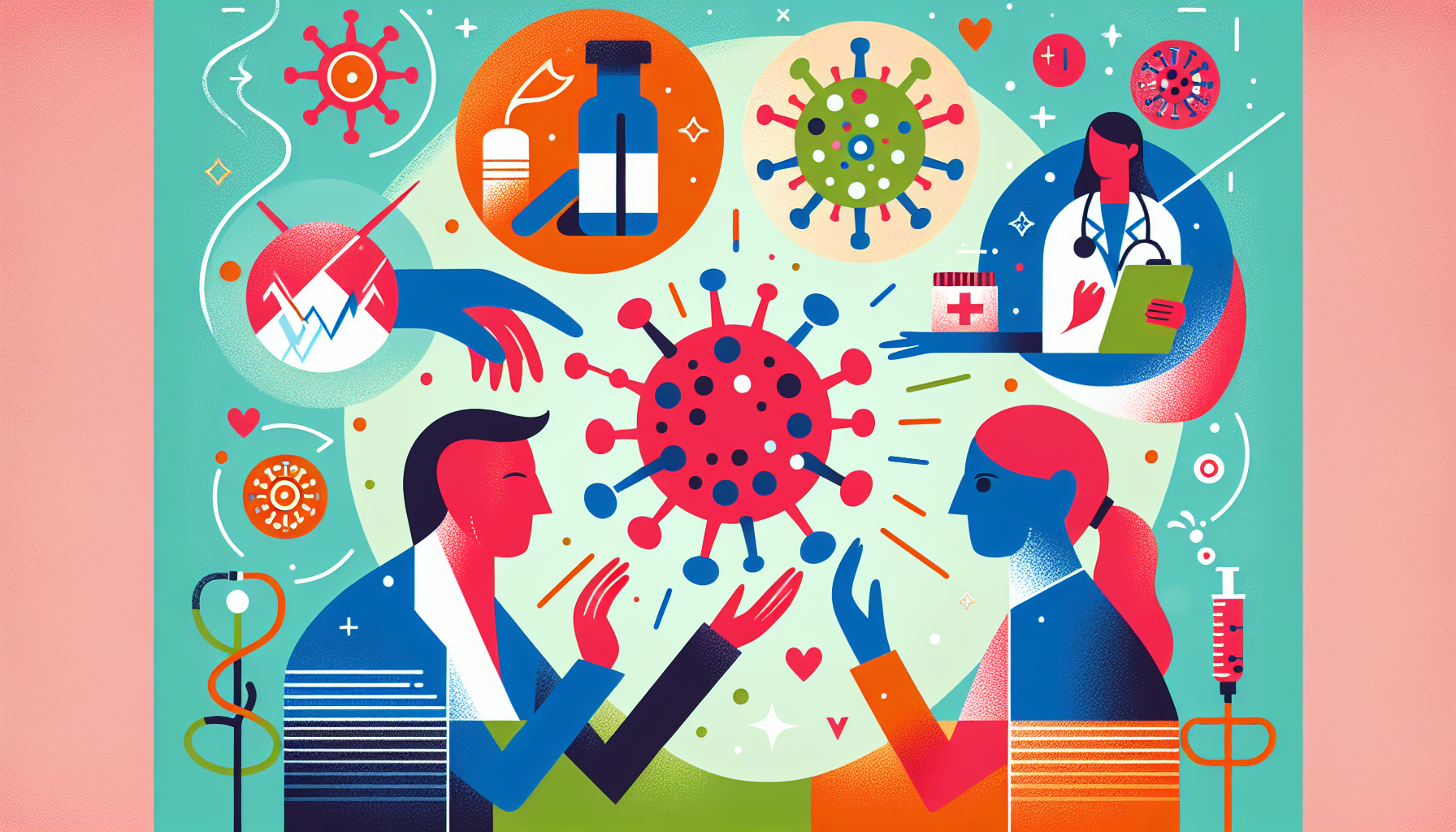The Epstein-Barr virus (EBV) is one of the most common human viruses in the world. It is highly contagious and spreads mainly through saliva and other body fluids. EBV is a type of herpesvirus known as herpesvirus 4, and once you're infected, the virus stays in your body forever. It can remain inactive or reactivate, causing symptoms to reappear.
Symptoms of Epstein-Barr Virus
After infection with EBV, symptoms can take 4 to 6 weeks to appear, but you can still pass the virus to others during this time. Symptoms are often mild, especially in young children, and may not even be noticeable. Most symptoms resemble those of a cold or the flu, while teens often experience more pronounced symptoms of mono, including extreme fatigue.
Common symptoms of Epstein-Barr virus include:
Although you should start feeling better in 2-4 weeks, fatigue may persist for a couple of months.
How Does EBV Spread?
EBV is highly contagious and spreads through saliva, so you can catch it from kissing someone who is infected. The virus also spreads easily from person to person through:
Coughing or sneezing
Sharing drinks or food
Sexual contact
Sharing toothbrushes, drinking glasses, or utensils
Touching toys or pacifiers kids put in their mouths
Diagnosing Epstein-Barr Virus
Diagnosing EBV based on symptoms alone can be challenging, as fever, fatigue, and sore throat can also indicate other illnesses like the flu or a cold. Consult your doctor for a proper examination to determine the cause of your symptoms. They may find signs of mono, such as an enlarged spleen, swollen liver, or white patches on your tonsils.
Your doctor may also run blood tests to look for antibodies against the virus, which can show if you currently have EBV or had an infection in the past. Other tests can detect white blood cells your body uses to fight off the EBV infection.
Treating Epstein-Barr Virus
As with other viruses, antibiotics are not effective against Epstein-Barr. Currently, there is no specific treatment for EBV, but researchers are investigating potential medicines that may work against the virus, such as dipyridamole, which is already approved for preventing blood clots in people with heart valve replacements.
EBV symptoms should clear up on their own within a few weeks with rest, fluids, and over-the-counter medications. To ease your symptoms at home, you can:
Get plenty of rest
Drink a lot of water and other liquids to stay hydrated
Suck on lozenges or ice pops, or gargle with warm salt water for a sore throat
Take acetaminophen or ibuprofen for fever or body aches (avoid giving aspirin to children under 19)
Gradually return to work or school and take things slowly until you feel better
Avoid sports, heavy lifting, or vigorous activities that could injure your spleen for about a month
Preventing Epstein-Barr Virus
Currently, there is no vaccine to protect against the Epstein-Barr virus, but researchers are studying potential vaccines that may be available in the future. The best way to avoid the virus is to stay away from anyone who you know is infected, especially someone who has mono.
Try these EBV prevention tips:
Avoid kissing an infected person
Don't share food or drinks with someone who has the virus
Don't share personal items like glasses, silverware, and toothbrushes with someone who's infected
Use protection if you have sex with someone who has the virus
Wash your hands after touching anything that has contacted the saliva of an infected person
When to See Your Doctor
Although rare, EBV can cause complications. See your doctor if you or your child experience any of the following symptoms:
Sudden, sharp pain on the left side of the belly, which could indicate a problem with your spleen
Very little urine, a sign of dehydration
Trouble breathing or swallowing (call 911 right away)
Also, contact your doctor if your symptoms don't go away after 4-6 weeks, as you could have another type of infection.
For more information on Epstein-Barr virus, visit:



